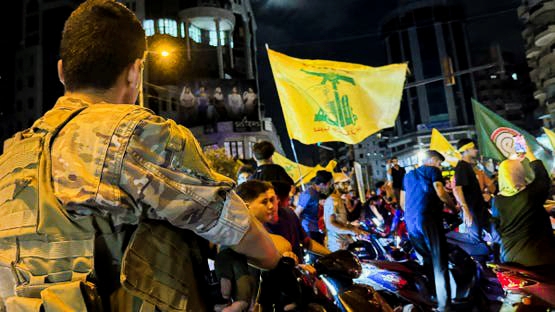Hezbollah Faces the Lebanese Government: Road Blockades and Refusal to Surrender Weapons
August 9, 202526 ViewsRead Time: 3 minutes

Font Size
16
The Lebanese arena continues to experience escalating tensions following the government's recent decisions: limiting weapons to the state before the end of the year, and agreeing to the paper of the American envoy Thomas Barak, which caused the withdrawal of ministers from the Shiite sect from two consecutive government sessions and significant street tension.
In a notable field development, Hezbollah supporters blocked main roads in protest against the government's decision, with the Zahle and Chaat roads in the Bekaa region of eastern Lebanon being closed, in addition to the Baabda-Hazmieh road leading to the capital Beirut.
As the intensity of the movements escalated, the Lebanese army intervened and arrested a number of the party's supporters after they reached the center of the capital.
These tensions come after the Lebanese government approved the item of limiting weapons to the Lebanese state, which was considered a direct step towards disarming Hezbollah, a matter that the party categorically rejected.
Mohammad Raad, a prominent deputy from the party, announced a tough stance, saying:
"Death rather than surrendering weapons to the government," in a clear challenge to the state's decisions.
For his part, the head of the Lebanese Forces party, Samir Geagea, emphasized that "Hezbollah knows very well that the weapons file is over," confirming that the party's disregard for the government's decision will put it "outside the law."
He expressed hope that the party would make the appropriate decision within two days to avoid further escalation.
Despite the escalation, Lebanese media revealed that communications between official quarters and Hezbollah continue - albeit indirectly - in an attempt to contain the crisis, control the street, and return to the political dialogue table, amid intensive efforts to bring the Shiite ministers back to the government to avoid disrupting its executive work.
According to sources, it is expected that American envoy Tom Barak will soon return to Beirut to continue discussions with Lebanese officials regarding the mechanisms for implementing the decision to limit weapons to the state, a decision for which he had carried a memo including a timeline and a detailed plan for disarming the party.
The Lebanese government meeting last Thursday at the presidential palace, which lasted more than four hours, discussed the details of Barak's paper and concluded with approval of only the introduction of the American paper, without yet addressing the items related to the timelines for disarming.
Information Minister Paul Marqas clarified that the government tasked the Lebanese army with preparing a clear plan to implement disarmament before the end of this year, which Hezbollah categorically rejects and considers an infringement on what it calls "the resistance's weapons."
In light of this explosive scene, all eyes remain focused on the coming days, amid significant questions:
Will mediations succeed in calming the street?
Will Hezbollah yield to the political solution or head towards an open confrontation with the state?